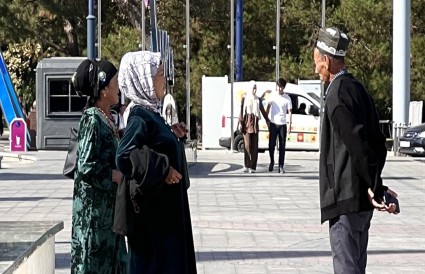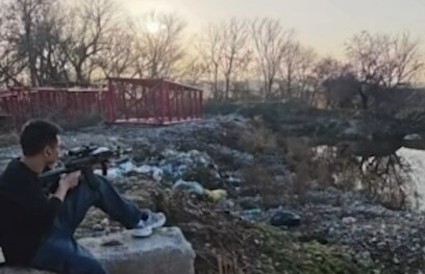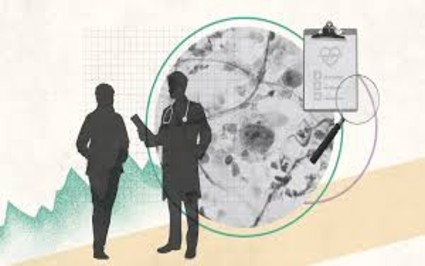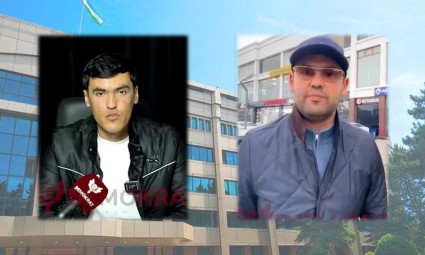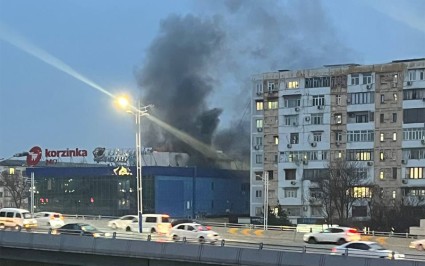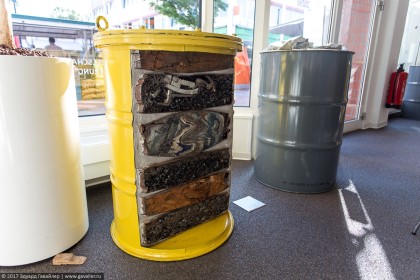The Minister of Foreign Affairs of Uzbekistan Abdulaziz Kamilov, speaking at a joint press conference following the meeting of the Uzbekistan-EU Cooperation Council in Brussels, took questions of the journalist of the Brussels Morning newspaper Lailuma Sadid regarding Afghanistan.
Liluma Sadid, Brussels Morning:
- Thank you very much for giving me the opportunity to give a question. I have a question for the Minister of Foreign Affairs of Uzbekistan. During these three months, senior members of the Uzbek government visited Afghanistan several times. Also, relations between the Taliban and Uzbekistan, since 1997, I think, are more or less open. If I can ask a question, how do you see the future and how do you feel about the cabinet that the Taliban set up without including any of the other groups. I mean what they call inclusive government, but it really isn't. Is Uzbekistan trying to talk to them without giving women a chance, as well as other ethnic groups in Afghanistan? How do you see the future of this country? And also about the supply of electricity? Are there any chances of continuing to work in this direction? Thanks".
The Minister Abdulaziz Kamilov:
- Thank you for this important question. We have repeatedly stated Uzbekistan’s position on the Afghan issue. In this regard, I will not repeat myself. I just want to outline what should be avoided and what, in our opinion, should be done.
First, Afghanistan should not be isolated from the international community. The pull-out of coalition troops from this country should not mean the loss of common interest and collective responsibility for the future of Afghanistan.
Second, Afghanistan must not become a cast-away state.
Third, the war in Afghanistan should not be continued by non-military means. Here I mean the asset freeze, sustainable humanitarian aid and delays in its delivery, pushing the Taliban to pursue a policy of self-isolation.
Now what should be done in this situation?
First, it is important to recognize the current reality and the new balance of power in Afghanistan. The burden of the Afghan problem must not be shifted onto the shoulders of the countries of the region and, especially, the closest neighbors.
Second, it is imperative to prevent a humanitarian crisis in Afghanistan. It is necessary to unfreeze Afghan assets in foreign banks and restore transactions.
Third, at the same time, we must clearly state that the recognition of the Taliban depends on certain conditions: the creation of a government based on a broad representation of all groups, ensuring fundamental human rights, pursuing a good-neighborly policy, combating terrorism, drug trafficking, organized crime etc.
Fourth, we must provide comprehensive assistance in the economic development of Afghanistan.
Finally, the positive steps taken by the Taliban should be encouraged in every possible way: opening schools for girls, giving women the right to work in government institutions, and so on. Currently, there are steps that the new interim government has taken.
Therefore, ladies and gentlemen, this is a very clear and open position of Uzbekistan regarding what should be undertaken by the international community, including the European Union, regarding Afghanistan.
As for Uzbekistan, we are implementing serious projects in the fields of energy and transport communications. We invited members of the interim government of Afghanistan to Uzbekistan and agreed on how we will organize our cooperation on specific aspects of the economy, trade and even in the field of security.
When we negotiated with the new Afghan authorities, they gave guarantees to ensure the security of the borders. Moreover, we coordinated our joint efforts to organize several major evacuation operations for representatives, citizens of Western countries and Afghans, who cooperated with the military coalition and helped them.
Therefore, we hope that progress can be made step by step. We have no other choice. This is a reality that needs to be recognized and worked with the countries of the region to find opportunities for cooperation. Of course, we are not going to unilaterally recognize the interim government. There must be a common international approach.
Liluma Sadid, Brussels Morning:
- Thank you very much, Mr. Minister. I am very glad that you mentioned a slightly different topic, the topic of Afghanistan. As you mentioned, military methods do not work in Afghanistan, but we see a political path in Afghanistan. But do not forget the time when the Taliban came and took power in Afghanistan, it was a military coup. First, they could not come to power by a peace agreement. And secondly, regarding the recognition of the Taliban, I am sure that no one should recognize the Taliban, because up to 17 Taliban members in the cabinet are blacklisted by the United States. And also, if we are talking about humanitarian support, if we are talking this way and providing assistance to the government or the Taliban regime, how can we be sure that this assistance ultimately reaches the vulnerable people of Afghanistan who really need it? Also, I hope you spoke to high-level Taliban officials, pressured them to accept women into the office, and also give them a better chance as before. Otherwise, without Afghan women in the cabinet or government, I am confident that we will lose all the opportunities that we have had over these 20 years. As far as I know, Uzbekistan is an Islamic country. There is no problem and anyone can become a minister or a member of parliament. And I hope in this respect that you are trying to have good negotiations with the Taliban. Could you tell us in more detail what is the next plan for Uzbekistan regarding the regime of the terrorist group such as the Taliban and the Haqqani Network. And there is also the Al-Qaeda group in Afghanistan, and I am sure that it is dangerous not only for Afghanistan, for the region, but for the whole world. Thanks.
The Minister Abdulaziz Kamilov:
- Many thanks. I understand very well how difficult it is to overcome psychological barriers. Therefore, over the past twenty years, the coalition has fought against the Taliban. However, please look at the situation from a different angle.
The Taliban are not only the main force in Afghanistan, but also a part of Afghan society. They have never organized terrorist attacks outside national borders. You cannot give a single example of a terrorist attack organized by the Taliban in Central Asia, Europe, the United States, South Asia or anywhere else.
At the same time, it is a reality. You have many questions, but no suggestions on what to do. And so we take into account reality. And over the past 20 years, and in general over the past forty years, the great powers have not been able to resolve the situation in Afghanistan.
Now some countries are offering funding and asking in return to host thousands of refugees, which is a dead end. We do not understand this. I noted that the military coalition, which has fought for the past 20 years, is also responsible for the current situation in Afghanistan.
Therefore, I think, I feel that you do not have enough news and information about Afghanistan, maybe because there is no communication channel between Europe and the Taliban and with the Afghans in general. Therefore, you cannot accept reality, you cannot establish any informal contacts with the interim government. But, despite this, there must be a communication channel. I think so.
As for your question about what Uzbekistan is going to do in the future: we will continue our policy, which we adhere to today.


